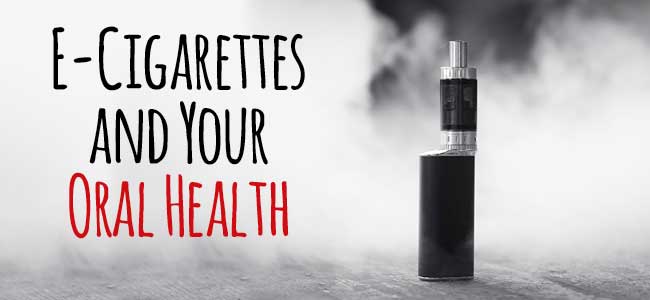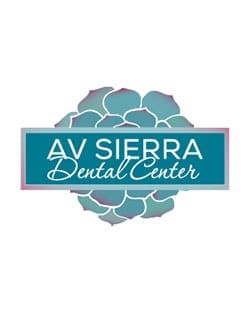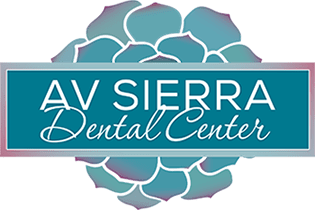E-Cigarettes and Your Oral Health: The Smokeless Threat to Your Smile

For many smokers, e-cigarettes seem like the best answer to avoiding the nasty side effects of smoking traditional cigarettes, including the odor and the staining of teeth, skin, and clothing. Though e-cigarettes still contain the highly addictive chemical nicotine, tobacco and other harmful elements are eliminated from the electronic smoking process, or what some refer to as “vaping.” The growing popularity of e-cigarettes and vaping, especially among young people, has caused a rise in concern over the lack of knowledge around the effects it has on health. While clinical studies are currently underway, in 2014 the U.S. Food and Drug Administration (FDA) released a statement saying “e-cigarettes have not been fully studied, so consumers currently don’t know the potential risks of e-cigarettes when used as intended, how much nicotine or other potentially harmful chemicals are being inhaled during use, or whether there are any benefits associated with using these products.” Vaping has a direct effect on oral health. Exposure to e-cigarette aerosol can lead to an increase of bacteria in the mouth, which is associated with gum disease, cavities, and tooth decay. The flavoring added to many e-cigarettes can also lead to cavities, not to mention an increased chance of developing chronic lung diseases. It can also cause dry mouth, inflamed gums, and other issues dentist are able to speak to how these new smoking devices threaten your oral health. Nicotine is harmful to your teeth and gums, even in the absence of tobacco and other chemicals traditionally found in cigarettes. Electronic cigarettes still deliver nicotine to their users through the mouth, throat, and lungs. The following are some of the consequences that come with using smokeless cigarettes. Gum Disease: One of the highest risks of e-cigarettes is an increased risk of gum disease coming from three specific conditions. Nicotine leads to Vasoconstriction, which is the limiting of the blood supply to the gums. When the blood supply to your gums is reduced it makes the more susceptible to infection and can lead to gum recession. Gum disease is caused by plaque bacteria. Smoking dries out your mouth, creating an environment that is more conducive for bacteria growth. Your immune system is weakened as a result of smoking, so infectious diseases can develop at a faster rate. It’s important to note that in addition to the problems caused by vasoconstriction one of the telltale signs of gum disease is swelling of the gums caused by irritation. When nicotine reduces blood flow, preventing swelling, this indication of gum disease can be masked, causing your dentist to miss the symptoms and allowing the disease to progress. Gum Recession: Lack of blood flow to the gums keeps the tissue from receiving the nutrients it needs to survive. Over time the skin dies and recedes. Bad Breath: Nicotine restricts your body’s ability to produce saliva, which makes your mouth vulnerable to harmful bacteria and tooth decay. Combined, dry mouth and bacteria lead to halitosis, which can be embarrassing and can affect your self-esteem. Intense Grinding: As a stimulant, nicotine causes muscles to tighten and spasm against the user’s will. It can cause sleep disturbances such as insomnia and grinding of the teeth. Grinding, especially while sleeping, can be damaging to teeth and result in the loss of tooth enamel, as well as chipping, cracking, and breaking of teeth. If you want to maintain your best oral health, avoiding any type of smoking is recommended. If you do choose to smoke, keeping it to the minimum and maintaining your best at-home oral hygiene practices as well as your routine visits to the dentist is important. If you see signs of periodontal disease (including red, swollen, bleeding, or receding gums) or experience bad breath, painful chewing, or loose teeth, make sure to contact your dentist immediately. There are treatments you can receive that will help keep your teeth and gums in the best possible condition. Two such treatments include: Professional dental cleanings Plaque and tartar are removed from above and below the gumline. If you have gingivitis or signs of periodontitis, you will be required to have this level of cleaning twice a year or more. Scaling and root planing Plaque and tartar are scraped away from both above and below the gumline while under local anesthetic (scaling). Rough spots on the tooth root are then smoothed out (planing). Locally applied medications, such as antimicrobials and antibiotics, may be used. If you are experiencing jaw tightness or pain, and you think you might be grinding your teeth, your provider can fit you with a mouthguard that will protect your teeth while you sleep. It can be difficult to share your habits with your dentist. At AV Sierra Dental Center, we treat our patients with respect and compassion. We are here to help you be your healthiest self. If you use e-cigarettes and are concerned about how they may be affecting your oral health, call us today and set up a consultation. We will help you protect your teeth and maintain your natural smile.
Avoid Bad Breath for Good

In almost every social situation, there is one thing most people are concerned about: halitosis, better known as bad breath. It can be embarrassing for you, uncomfortable to other people, and potentially a deal breaker for a job interview or date. To make it even more difficult to manage, our bodies have a great way of blocking out constant smells, making it very hard to determine if we have bad breath before it’s too late. How do I know if I have bad breath? You can easily test how your breath smells to others with this simple test. Lick part of your arm and smell it after about 10 seconds. Now, licking your arm in public may seem weird (and have its own social consequences), this test can give you a good indication of how your breath smells. However, it may not always be accurate. The best thing you can do is be aware of what causes bad breath and prevent it before it happens to you. How do I Make my Breath Smell Better? Hygiene The most common cause of bad breath is straightforward; you have a dirty mouth. Bacteria live in your mouth, and when you eat, they eat. These odors are made worse by your tongue, which acts like a fleshy dish sponge, absorbing food particles and bacterial byproducts. If you think this is your issue–and it is best place to start–the best remedy to avoid bad breath is to brush and floss daily. This will help eliminate leftovers for the bacteria to eat. To further eliminate any odor, open your mouth and look at the back of your tongue. If looks like it’s covered in a white or brown substance, this could be the main source of your bad breath. Brush as far back on your tongue as you can with your toothbrush, or use a tongue scraper, which will do the job more efficiently. Dry Mouth Saliva keeps the mouth clean by washing away bacteria, plaque, and keeping the acidic levels in your mouth at the proper level. If your mouth is chronically dry, bacteria can take over, leading to bad breath. If you are experiencing dry mouth, be sure you are drinking plenty of water. Additionally, check to see if any medication you are taking causes dry mouth. If so, talk to your doctor about solutions or a potential change in medication, that can prevent your dry mouth and bad mouth smell. Specific Types of Food There are certain types of food that cause bad breath. No matter what you do, you won’t be able to avoid the unwelcome baggage they carry. Coffee, tuna, onion, and garlic have a tendency to stick around even after you brush your teeth. For example, as garlic is digested, sulfur compounds permeate your lungs and skin, meaning there isn’t much you can do to hide the smell. For the sake of everyone around you, don’t go to hot yoga after eating a clove of garlic. Disease Bad breath can also be a sign of something more significant. If you have ruled out the issues above, bad breath (along with other symptoms) can be related to diabetes, gum disease, kidney disease, and many more chronic conditions. If you think your bad breath is connected to a more serious ailment, contact your family doctor to learn more. How Do You Get Rid of Bad Breath That Won’t Go Away? If you can’t improve the smell of your breath on your own you may need to talk to your dentist. Dentists are able to look at your mouth and see what the potential cause of your bad breath is. They will have the expertise to notice if it’s plaque, debris on your tongue, or periodontal disease. They can also prescribe you medicine for halitosis such as antimicrobial toothpaste and mouthwash to take care of the issue. The dentist may determine that the issue may not be located in your mouth, and would then refer you to your family doctor. Come visit Drs. Oh and Couto at AV Sierra Dental Center if you have any more questions or concerns about halitosis.
’Tis the Season for Getting Fresh: Avoid Bad Breath

Mistletoe has been hung, setting blissful, kissing booby traps for the unsuspecting, and when the ball drops, lips will lock everywhere. During the month of December, your oral health and hygiene needs to be on point! Brushing and rinsing twice a day, as well as daily flossing, helps keep your mouth healthy but doesn’t necessarily ensure fresh breath that will last all day long. And during a season hallmarked by the unexpected, one does not want to be caught face-to-face suffering from a bad case of halitosis. So what can you do to improve your chances of being 100% smoochable should the opportunity arise? Read on for breath-saving tips that are sure to improve your chances of ringing in the New Year with more than a smile on your lips. Food for Thought When you eat, food is absorbed into your bloodstream and expelled out of your lungs when you breathe. This means that you may suffer from bad breath even when your diet is healthy and balanced. The following foods are notorious for turning breath foul, so ingest them sparingly or at least with extreme caution. Garlic: This powerful herb can turn a bland dish into a delectable culinary work of art. Its versatility allows it to be used in a variety of cuisines and eaten or used for cooking whole, crushed, chopped, or dried and powdered. Garlic is also renowned for its health benefits and its ability to ward off vampires. While it does all of these amazing things, its major drawback is its ability to turn the odor of your breath into a scent so repellant that even the most determined admirer would have great difficulty overcoming their repulsion long enough to plant a wet one on you. Also note: If eaten regularly and in large quantities, it can affect your body odor negatively as well. Onion: While onion is not as powerful as garlic, its fellow odoriferous bulb, this herb is commonly used to enhance the flavor of a large range of dishes. It is often served raw in salads, added to soups and other savory dishes, and comes in a large variety of types and flavors. The types of onion include brown onions, green onions, leeks, pearl onions, shallots, and more, and while they are all very different in appearance, texture, and flavor, they all have one thing in common: They make your breath stink. Coffee: Too much coffee gives you bad breath. It’s a hard truth to face, especially since dates at coffee shops are where many love stories begin. Coffee is wonderful at delivering a warm wake-up call each morning and nurturing its consumer into a state of alertness that allows them to take on the day. While this is a deeply appreciated trait, what few people realize is that it’s also one of the most dehydrating drinks you can consume. We aren’t suggesting that you quit coffee for good, but if you want the confidence that comes with fresh breath, you should limit your consumption to a cup a day. Alcohol: Don’t give up your Champagne toast at midnight on New Year’s Eve, but do watch your overall consumption of alcoholic beverages. That beer you look forward to at the end of each day and that weekly happy-hour cocktail you consume with your co-workers is drying out your mouth. When your saliva flow runs low, bad-smelling bacteria sticks around and turns breath bad. Battle Bad Breath There are a variety of simple ways you can actively ward off and battle bad breath on a daily basis. Stay hydrated: Drink water all day long. It washes away leftover food particles and the bacteria that can lead to decay, and it helps you avoid dry mouth. Aim for six to eight 8-ounce glasses of water a day. Clean your tongue: Residual buildup between your taste buds and the fold in your tongue can affect your breath negatively. Keep your tongue clean by brushing it regularly. You can also find very effective tongue scrapers at most drugstores. Chew gum: Sugarless gum with xylitol keeps your breath fresh while cleaning your teeth. Gum stimulates the flow of saliva, which washes unwanted debris from your teeth. Snack on this: Crisp, fresh fruits and vegetables turn on the flow of saliva and decrease the occurrence of bad breath caused by hunger. When you become hungry, especially when you are on calorie-restricted diets, the acids in your stomach build up and give your breath a nasty scent. Eat your garnish: Parsley is a popular garnish on many of the dishes served in restaurants. Most people think the only purpose it serves is to pretty up your plate. But parsley contains chlorophyll, which is a powerful breath and post-meal romance saver. If you want to feel completely confident this holiday season, give your Palmdale dentist office a call at 661.202.3542 to set up a cleaning. We will make sure your smile is New Year’s Eve ready, so you can enjoy kissing this year goodbye.


